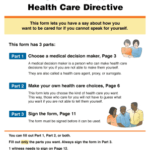Bankruptcy
There are several factors that may affect the court’s ruling on a bankruptcy claim. For some people, filing for bankruptcy is their only option to solve their financial predicament. Therefore, it’s important to make sure that their claim isn’t rejected. But how does one prepare for a bankruptcy filing? Here are simple tips.
1. Consult A Bankruptcy LawyerThe first thing that a claimant should do before filing for bankruptcy is to talk with an attorney specializing in bankruptcy law. A bankruptcy lawyer can help you understand the bankruptcy process, prepare the necessary documents and give advice on what to expect during the proceeding. You can check with your local bar association or ask your friends if they recommend one
2. Declare All Your Assets, Income, Expenses and DebtsUnder the bankruptcy law, claimants are required to declare all their assets and liabilities when filing bankruptcy. Non-disclosure of such items may cause the rejection of the claim and even possible fines and criminal charges.
3. Prepare The Necessary DocumentsOne of the requirements needed in a bankruptcy claim are financial statements. Claimants are required to present documentation of their income within the last six months. Credit card and savings account are required as well. Also, income tax returns within the last four years and a list of creditors should be prepared. Consult with a bankruptcy lawyer to check what documents should be presented.
4. Stop Using Your Credit CardThe reason you’re filing bankruptcy is because you’re unable to pay and incurring additional debt prior to filing bankruptcy isn’t going to help your case. Taking out a cash advance on a credit card is a big no-no as well when filing for bankruptcy. These actions cast a negative impression with the court and may cause the rejection of your claim. So, stop using your credit card.
5. Open a New Bank AccountIf your bank or credit will be necessarily included in your bankruptcy, it is best to open new accounts with a new bank or credit union. When banks and credit unions lose money on you because your debt to them was eliminated in a bankruptcy, they will likely close your account. It is much more easy to open a checking and savings account with a bank prior to the time you file than it is after you file.
6. Don’t Take Out Your Retirement Or 401 (K) PlanSome people think that it’s better to withdraw these funds instead of it being forfeited and used to pay their debts. However, retirement plans and 401(k) accounts are usually exempted during a bankruptcy proceeding; hence, you get to keep it.
7. Do not pay any creditor more than $599.00 within 90 days of filing for bankruptcySometimes it is tempting to pay a creditor more than what is owed that particular month in order to keep a good relationship with that creditor. This is especially tempting when your creditor is a family member or friend. If, however, you do pay the creditor, you will be required to disclose that payment to the court and the trustee, and a bankruptcy trustee will pursue that creditor. He will do it on the grounds that the creditor was unfairly “preferred” above other creditors. The trustee will sue to recover the money paid and will then distribute the recovered money to all similarly situated creditors.
8. Plan how to deal with your unprotected assets.Some assets are protected by Utah law. Others are not. Those assets that are not protected will be sold by the Chapter 7 trustee or dealt with by a Chapter 13 trustee (you may have to pay for the privilege of keeping those assets). Because these rules are somewhat complicated, it is best to consult with an experienced bankruptcy attorney as to which assets will be protected and which will not. That attorney can help you decide how best to prepare for the bankruptcy by disposing of unprotected assets in a manner that is acceptable under the Bankruptcy Code.
9. Dispose of your tax refund prior to filing.Bankruptcy trustees will always, always take your tax refunds if you have not already received and disposed of them. If you have disposed of them, they will ask you how you spent the money. There are certain ways you can spend the money without running into trouble. Again, it is best to talk with an experienced bankruptcy attorney as you plan on spending those tax refunds.
10. Prioritize paying those bills that will survive the bankruptcy.Many debts will be eliminated through a bankruptcy, but not all of them. Most back taxes, student loans and unpaid child support and alimony are examples of debts that survive bankruptcy. Because these debts will survive, it is wise to prioritize these debts above those debts that will be eliminated in the bankruptcy, such as most credit card debt. Sometimes doing this is difficult; it is tempting to feed the creditor that cries loudest. Nevertheless, if that creditor is going to have their debt eliminated in the bankruptcy, it best to simply ignore the call. Place your priorities on those creditors that will not be going away.
Bankruptcy





